QUESTION: Why is it when birds fly in a “V” shape one side is longer?
The answer will be provided, below.
Part 1 of 2
Microsoft’s Steve Ballmer is going to retire within the next 12 months. There’s a lot of ground to cover, so let’s get to it.
One of the most striking differences between a cat and Steve Ballmer is that a cat has only nine lives. ((With my apologies to Mark Twain for stealing and re-purposing his prose.))
1. The Good
1.1 CRAZY, ZANY, BALLMER
The surest way to make a monkey of a man is to quote him. ~ Robert Benchley
 Ballmer gets a lot of grief for what he says, what he says it about, what he does and how he looks. He does, admittedly, have an eerie resemblance to Uncle Fester from the Adams Family.
Ballmer gets a lot of grief for what he says, what he says it about, what he does and how he looks. He does, admittedly, have an eerie resemblance to Uncle Fester from the Adams Family.
But let’s set all that aside. You’ve got to get off the guy’s back and cut him some slack. The man is high energy and fun. The world would be a lot better place if more people put as much of themselves into their work as he does.
1.2 THE SALES GUY
Besides, Ballmer is the sales guy. Firing up the troops is part of his job. And he does that job exceptionally well.
The secret of life is honesty and fair dealing. If you can fake that, you’ve got it made. ~ Groucho Marx
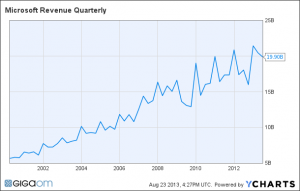 And speaking of doing one’s job, the job of the sales guy is to bring in the money. And NOBODY did a better job of bringing in the money than did Steve Ballmer.
And speaking of doing one’s job, the job of the sales guy is to bring in the money. And NOBODY did a better job of bringing in the money than did Steve Ballmer.
Microsoft more than tripled its annual revenue from $22 billion annually when Ballmer took over to $78 billion when he announced his departure. To put that in perspective, while Ballmer was CEO, Microsoft grew revenue by $55B. Dell grew by $31B, Oracle by $27B, Intel by $19B, IBM by $16B. [Source: Aaron Levie (@levie)]
1.3 DOES STEVE BALLMER LOVE MICROSOFT?
Oh yes. With all his heart and all his soul. And I honor him for it.
[pullquote]Steve Ballmer loved Microsoft…just not enough to leave it[/pullquote]
“This is an emotional and difficult thing for me to do. I take this step in the best interests of the company I love…” ~ Steve Ballmer
Steve Ballmer loved Microsoft…just not enough to leave it as soon as he should have. And for that, his legacy, and Microsoft, will have to pay a price.
2. The Indifferent
There were things about Steve Ballmer that I didn’t much care for, but they weren’t relevant to his demise. They were merely annoying. In terms of analyzing his tenure at Microsoft, I’m indifferent to them.
2.1 STOCK MARKET REACTION TO RETIREMENT ANNOUNCEMENT
I don’t put all that much stock in the stock market’s knee jerk reactions to events, but I will admit that it’s kind of discouraging that the announcement of Ballmer’s resignation made shares jump as much as 9.4%. That’s good for a cool $28 billion in extra market cap value overnight. Not exactly a ringing endorsement.
Being a CEO is a poor way to make a rich living.
2.2 BUREAUCRACY AND INFIGHTING
So much of what we call management consists in making it difficult for people to work. ~ Peter Drucker
Politicking is endemic in any big company, but Microsoft does seem to epitomize the very worst of this kind of behavior. And Ballmer apparently raised politicking to an art form.
2.3 ORWELLIAN COMMUNICATION STYLE
If I seem unduly clear to you, you must have misunderstood what I said. ~ Alan Greenspan, Federal Reserve chairman
Microsoft has always had a bizarre communication style. To be truthful, it sometimes hurts my head.
Perhaps Bill Gates and Steve Ballmer had the same, inscrutable, English teacher when they attended Harvard together. Perhaps not. In any case, Ballmer has the gentle touch of a blacksmith when it comes to word craft. For example, did you fully understand his recent reorganization tome memo? No?
Neither did anyone else.
Here’s a couple of snippets:
“The evangelism and business development team will drive partners across our integrated strategy and its execution.”
Say whaaaaaa…?
“Our focus on high-value activities—serious fun, meetings, tasks, research, information assurance and IT/Dev workloads—also will get top-level championship.”
Meetings…serious fun…top-level championship…Come again?
“In the new, rapid-turn world, we need to communicate in ways that don’t just exchange information but drive agility, action, ownership and accountability.”
As Curt Woodward so charmingly puts it: “You’ve got to love a passage about communication that makes almost no sense….”
If you’re a glutton for punishment, there’s way more where that came from. Knock yourself out.
There are worse things in life than death. Have you ever spent an evening reading a Steve Ballmer Memo?
Poor communication is not really a fatal flaw, but still, Ballmer’s inability – or unwillingness – to communicate clearly didn’t help him any.
2.4 BOMBAST
Steve Ballmer:
— “Linux is a cancer that attaches itself in an intellectual property sense to everything it touches.”
— “Google’s not a real company. It’s a house of cards.”
“Zeal without knowledge is fire without light.” ~ Thomas Fuller
— “(T)here will be 30 million Windows Phone 7 smartphones sold in 2011.” ((Say, what ever happened to Windows Phone 7, anyway?))
— “500 million people will be using Windows 8 (in 2013).”
Underpromise and overdeliver. ~ Thomas Peters
— “There’s no chance that the iPhone is going to get any significant market share. No chance.”
— “(W)e are not going to let any piece of this [go uncontested to Apple].” … We are not leaving any of that to Apple by itself. Not going to happen. Not on our watch.”
The words you speak today should be soft and tender … for tomorrow you may have to eat them.
I think that part of Ballmer’s bombast comes from his sales background. But personally, I could have done with less of it.
Boasting is not courage. – African proverb
2.5 NEVER ACCEPT RESPONSIBILITY
I make mistakes; I’ll be the second to admit it. ~ Jean Kerr
Excerpt from: Ballmer just opened the second envelope:
“Ballmer’s view of executive leadership doesn’t admit standing up and taking responsibility. He can’t say ‘I screwed up’ and then explain what he’ll do to rectify the situation. No. Instead, (Lieutenants) are fingered while they pretend they aren’t being blamed.
When questioned about Apple overtaking Microsoft, Ballmer had this to say: ‘It is a long game. We have good competitors but we too are very good competitors,’ he said. ‘I will make more profit and certainly there is no technology company on the planet that is as profitable as we are.’
When it comes to profits, Ballmer is willing to take credit.”
“A man can fail many times, but he isn’t a failure until he begins to blame somebody else.” ~ John Burroughs
2.6 BALLMER WAS NO VISIONARY BUT THEN, HE WASN’T HIRED TO BE A VISIONARY
People complain that Ballmer wasn’t a software guy, wasn’t a product guy, wasn’t a visionary. But Ballmer wasn’t hired to be a visionary.
You may as well expect pears from an elm. ~ Miguel de Cervantes
Bill Gates had set the course. What the board wanted from Ballmer was a steady hand at the tiller that would follow the course that had been laid in for him and to follow that course with all due speed. And that’s exactly what Ballmer did — in spades.
“If you see Ballmer’s job as being the preservation of MS’s position on the desktop, he’s certainly been a success. Microsoft’s real customers, IT departments, still trust Microsoft and still buy from them, mainly because Microsoft treats them very well. You say Ballmer’s a failure because he hasn’t been “disruptive”? His customers don’t want disruption…. ~ In defense of Ballmer
[pullquote]Ballmer thought he was both the skipper and the pilot[/pullquote]
There’s nothing wrong with having a non-visionary at the helm. There are lots of non-visionaries at the helms of large corporations. The trick is to know that you’re not the pilot and to find a pilot (visionary), that you trust, to advise you.
If Ballmer had a failing as a captain, it might have been that he thought he was both the skipper and the pilot.
3. The Bad
3.1 DID BALLMER RESIGN OR WAS HE FIRED?
Two campers named Ballmer and Gates are walking through the woods when a huge bear appears in the clearing about fifty feet away. The bear (which owns a huge block of Microsoft stock) sees the campers and begins heading toward them.
Gates drops his backpack, digs out a pair of sneakers, and frantically begins to put them on. Ballmer says, “What are you doing? Sneakers won’t help you outrun that bear.”
“I don’t need to outrun the bear,” Gates says. “I just need to outrun you.”
Technically, Ballmer may have fallen on his metaphorical sword – but only because the Microsoft board was already ushering him before their metaphorical firing squad.
“I think it’s very likely that Ballmer’s decision [to retire] is part of a broader strategy within Microsoft as expressed by the reorganisation in July that is geared toward shifting the corporate culture.” ~ David Cearley of Gartner
Poppycock. ((Look that word up. I think you’ll be surprised by its origin.))
The evidence that it was a recent and sudden decision to abandon Ballmer to the bears is overwhelming:
- Interviews with dozens of people indicate that Ballmer had not aimed to leave this soon.
- One former senior executive said: “It’s a total shocker.”
- He was definitely not leaving and then he suddenly was,” said one source.
- He was at the very beginning of a major corporate restructuring that consolidated power to himself.
- Ballmer’s July restructuring announcement made it crystal clear that he was there to stay. ((“Lots of change. But in all of this, many key things remains the same. Our incredible people, our spirit, our commitment, our belief in the transformative power of technology — our Microsoft technology — to make the world a better place for billions of people and millions of businesses around the world. It’s why I come to work inspired every day. It’s why we’ve evolved before, and why we’re evolving now. Because we’re not done. Let’s go.”)) (“It’s why I come to work inspired every day … Because we’re not done. Let’s go.”)
- He clearly lost the backing of Bill Gates — notice how his farewell letter didn’t thank or even reference Gates?
- The board gave themselves 12 months – TWELVE MONTHS – to find a successor. They were clearly unprepared.
- Finally, I find the implied logic contained in the following tweet to be totally persuasive:
Not to be cynical but who decides to retire without “spending a lot of time thinking about what comes next?” Just saying… ~ Lessien (@Lessien)
Diplomacy is the art of saying ‘Nice doggie’ until you can find a rock. ((Will Rogers)) The Microsoft Board just found themselves a big ol’ rock.
3.2 THE TIMING OF BALLMER’S DEPARTURE IS JUST AWFUL
Ballmer writes in his farewell memo:
There is never a perfect time for this type of transition, but now is the right time.
No. It’s not.
They’ve just completely recreated the company in a pattern that’s totally alien to most organizations of their size. ~ Guy English
The just announced reorganization consolidated power with the CEO. Announcing one’s retirement right after an audacious power grab doesn’t make any sense for either Ballmer or Microsoft.
The timing is painfully awkward. I think that Guy English is spot on when he says:
Microsoft is currently searching for a new CEO who’ll fit the straight jacket Steve Ballmer has left behind.
Just a disaster in the making.
3.3 LOST STOCK VALUE
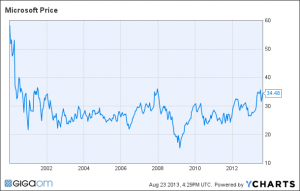 Do you really want to know why Ballmer is being left to the bears? Feast on this chart.
Do you really want to know why Ballmer is being left to the bears? Feast on this chart.
On the last day of 1999, the day before he took over as CEO, Microsoft’s market capitalization was $600 billion. On the day before he announced his intention to retire, it was less than $270 billion. ~ John Paczkowski
When Ballmer became CEO, Microsoft had a market value of $604 billion … Now, Microsoft’s market value is $269 billion, less than half of its value when Ballmer came to power. ~ Excite News
For a guy who said that helping Microsoft’s stockholders was a big part of his job, he did one lousy job.
3.4 LOST MONOPOLY
Don’t judge each day by the harvest you reap, but by the seeds you plant. ~ Robert Louis Stevenson
Flat stock market not enough justification to fire Ballmer? How about the loss of Microsoft’s all important computer operating system monopoly?
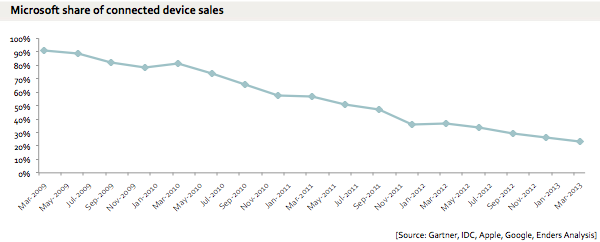
Microsoft’s share of connected devices sales (in effect, PCs plus iOS and Android) collapsed from over 90% in 2009 to under a quarter today.
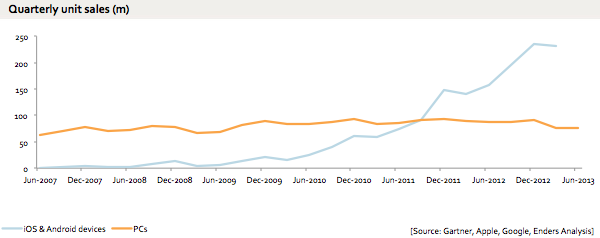
And Microsoft is nowhere in mobile. And mobile is where all the growth is occurring.
[pullquote]Should we be shocked that Ballmer lasted as long as he did?[/pullquote]
Looking at the above two charts, should we be shocked that Ballmer is being pushed out the door or should we be shocked that he lasted as long as he did?
I’m not going to write a long Ballmer blog post. He did some great work, but Microsoft is absent from mobile and mobile is all that matters. ~ Benedict Evans (@BenedictEvans)
Wow. That about says it all. Mobile is everything and (for analysts more discerning than I) dissecting Ballmer’s demise isn’t even worth the effort. It’s the ultimate dis.
3.5 LOST ENTERPRISE
In the first quarter of calendar 2013, iOS accounted for 75 percent of total device activations among enterprise users, Good Technology’s latest Mobility Index Report revealed on Wednesday. The remaining 25 percent were Android devices, while other platforms took less than 1 percent.
Tablets are now so popular among business users that they accounted for 27 percent of total device activations in the workplace in the first quarter. ~ Good Technology
Were you wondering if the Enterprise was going to bail Microsoft out? Stop wondering.
3.6 LOST REVENUE AND PROFIT LEADERSHIP
“There’s no chance that the iPhone is going to get any significant market share. No chance.” ~ Steve Ballmer
Remember how I was saying earlier that no one made money the way Steve Ballmer did? Well, that wasn’t quite accurate. Actually, a single Apple product—the iPhone—now generates more revenue than all of Microsoft put together. ((Apparently, if you’re a Nobel prize winning economist, the only possible conclusion you can draw from this information is that Apple is in much worse shape than Microsoft. Go figure.))
Yeah.
Give that some time to sink in.
3.7 LOST OPPORTUNITIES
A Windows Mobile Phone, a Zune, a Kin, and a Windows RT Tablet, WALK INTO A BAR and the bartender says, ‘What is this? Some kind of joke?’ ((AN ENGLISHMAN, AN IRISHMAN, A SCOTSMAN, A RABBI, A MINISTER AND A PRIEST WALK INTO A BAR and the bartender says, ‘What is this? Some kind of joke?’))
Steve Ballmer missed on search, tablets, phones, MP3 players, the consumerization of IT…the list goes on and on. As Nicholas Thompson of The New Yorker wrote: “Ballmer proved to be the anti-Steve Jobs” in his tenure. “He missed every major trend in technology. His innovations alienated people.”
Once a new technology rolls over you, if you’re not part of the steamroller, you’re part of the road. ~ Stewart Brand
Next
[pullquote]There’s more birds on that side[/pullquote]
QUESTION REDUX: Why is it when birds fly in a “V” shape one side is longer?
ANSWER: There’s more birds on that side.
* * * * *
Sometimes answers are complex. Sometimes they’re dumbfoundingly simple.
Sometimes the questions are complicated and the answers are simple.” ~ Dr Seuss
In Part 2, I’ll explore WHY Steve Ballmer and Microsoft failed. Is it as simple as saying that Steve Ballmer was a bad CEO? Or was his end inevitable and preordained by the Innovator’s Dilemma? Or was it something else entirely?
Discovery consists of seeing what everybody has seen and thinking what nobody has thought. ~ Albert Szent-Györgyi von Nagyrapolt
Join me next time and we’ll thrash it out together.
 I want my various “computers” — defined here as at least my smartphone, tablet, desktop, laptop, wearable watch, television and even car dashboard — to essentially operate as similarly as possible, preferably with a unified user interface and application set across all.
I want my various “computers” — defined here as at least my smartphone, tablet, desktop, laptop, wearable watch, television and even car dashboard — to essentially operate as similarly as possible, preferably with a unified user interface and application set across all.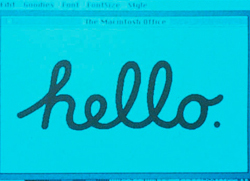

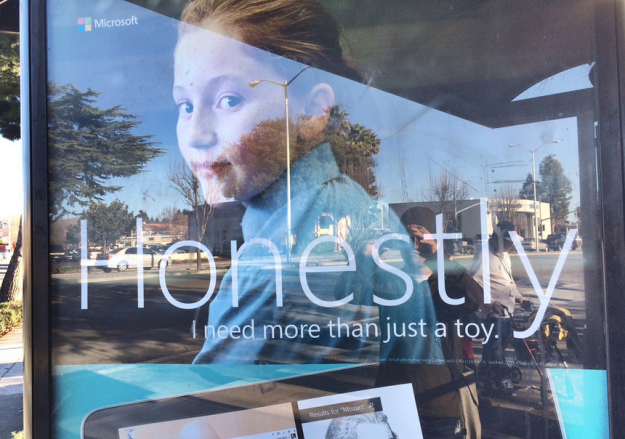
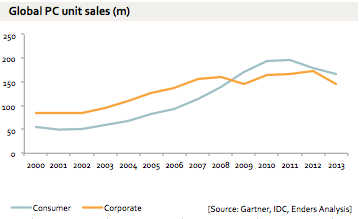 Benedict Evans poses — and then answers — the question: “How many people use PCs for ‘real work’?
Benedict Evans poses — and then answers — the question: “How many people use PCs for ‘real work’?
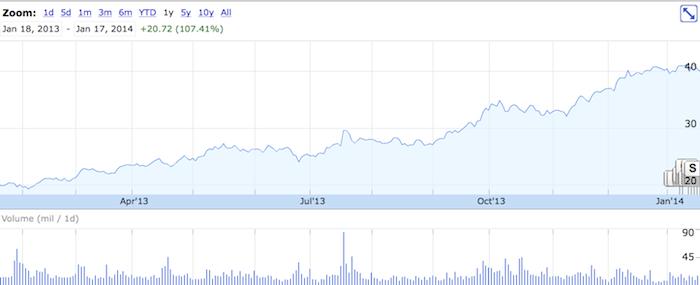

 Agreed.
Agreed.
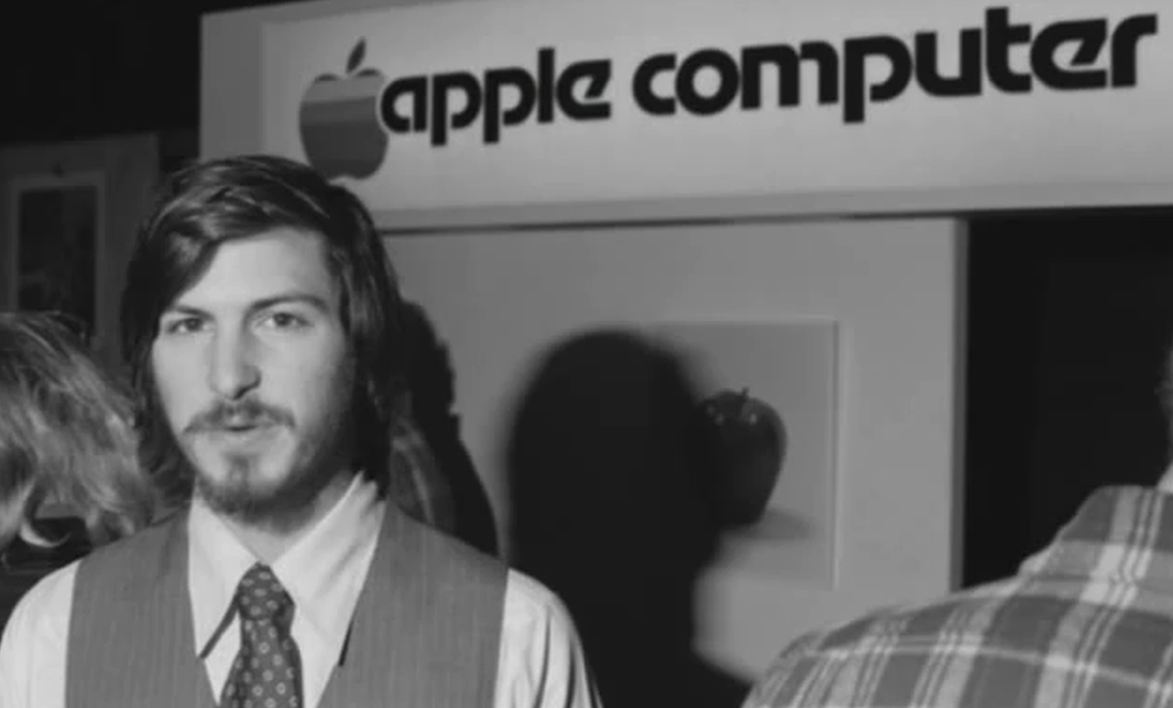
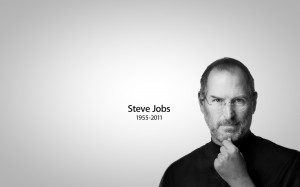 In so many ways, ways we now take for granted, ways that Google and Microsoft are rapidly trying to copy, it was Jobs who showed us the way — even as we all were convinced of his wrongness. Jobs proved us wrong not just on technical matters, but on profound aspects of both technology and business.
In so many ways, ways we now take for granted, ways that Google and Microsoft are rapidly trying to copy, it was Jobs who showed us the way — even as we all were convinced of his wrongness. Jobs proved us wrong not just on technical matters, but on profound aspects of both technology and business.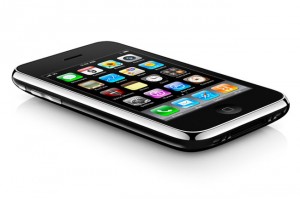



 If you want to know why Apple keeps winning in consumer markets and Microsoft keeps losing, you can find much of the answer in the ads the two companies use to present themselves to the world. This week, Apple channeled Frank Capra and Vincente Minelli into an iPhone ad in the form of a perfect 90-second nano-feature film. Microsoft, meanwhile, spends its ad dollars to trash the competition and come across as combining the worst features of Mr. Potter and the Grinch. I have worked with both companies for many years and can assure you that while they are very different from each other, both are fiercely competitive, touchy, and as huggable as hedgehogs. But there can be big difference between what you are and the persona you choose to present to the world.
If you want to know why Apple keeps winning in consumer markets and Microsoft keeps losing, you can find much of the answer in the ads the two companies use to present themselves to the world. This week, Apple channeled Frank Capra and Vincente Minelli into an iPhone ad in the form of a perfect 90-second nano-feature film. Microsoft, meanwhile, spends its ad dollars to trash the competition and come across as combining the worst features of Mr. Potter and the Grinch. I have worked with both companies for many years and can assure you that while they are very different from each other, both are fiercely competitive, touchy, and as huggable as hedgehogs. But there can be big difference between what you are and the persona you choose to present to the world.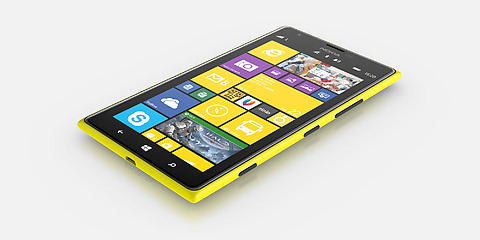
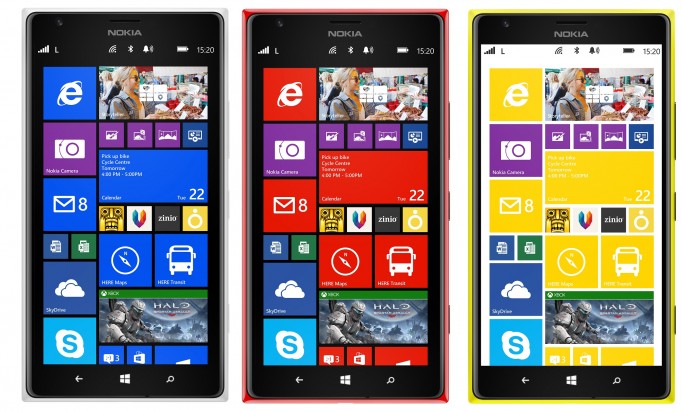
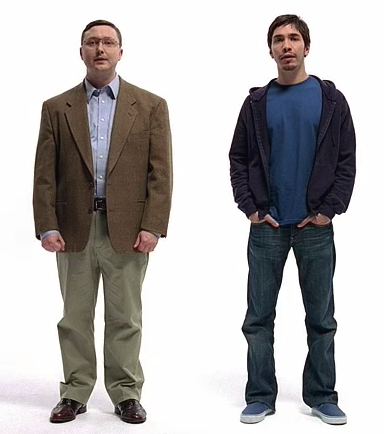

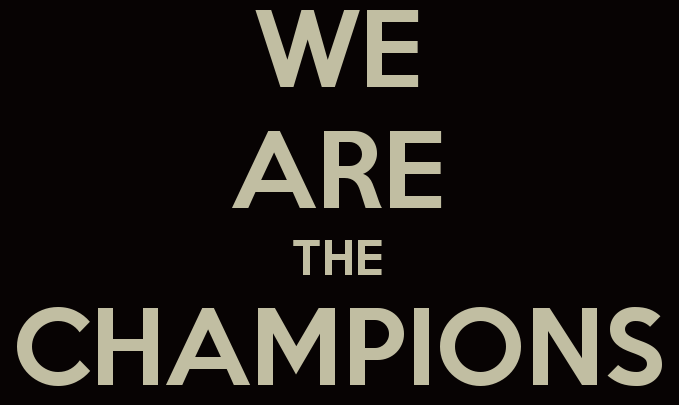

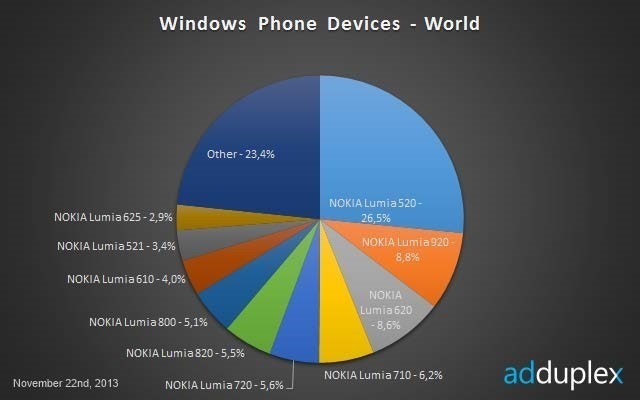


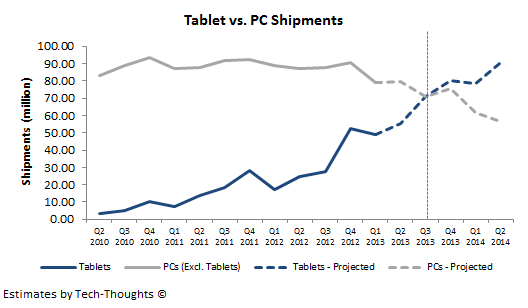
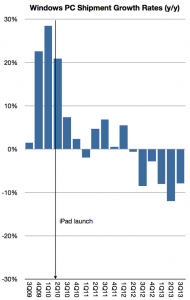
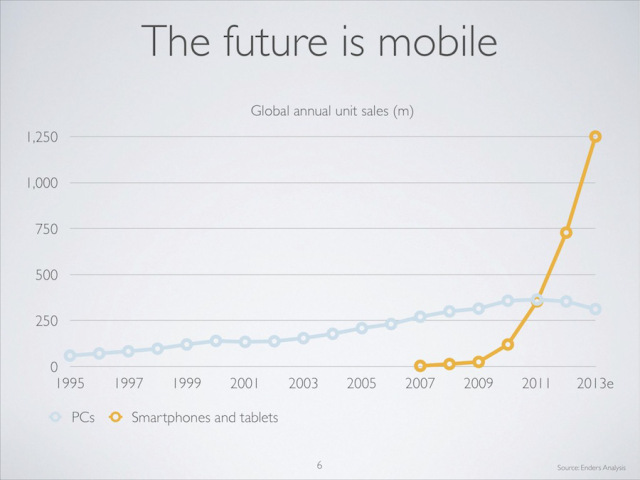
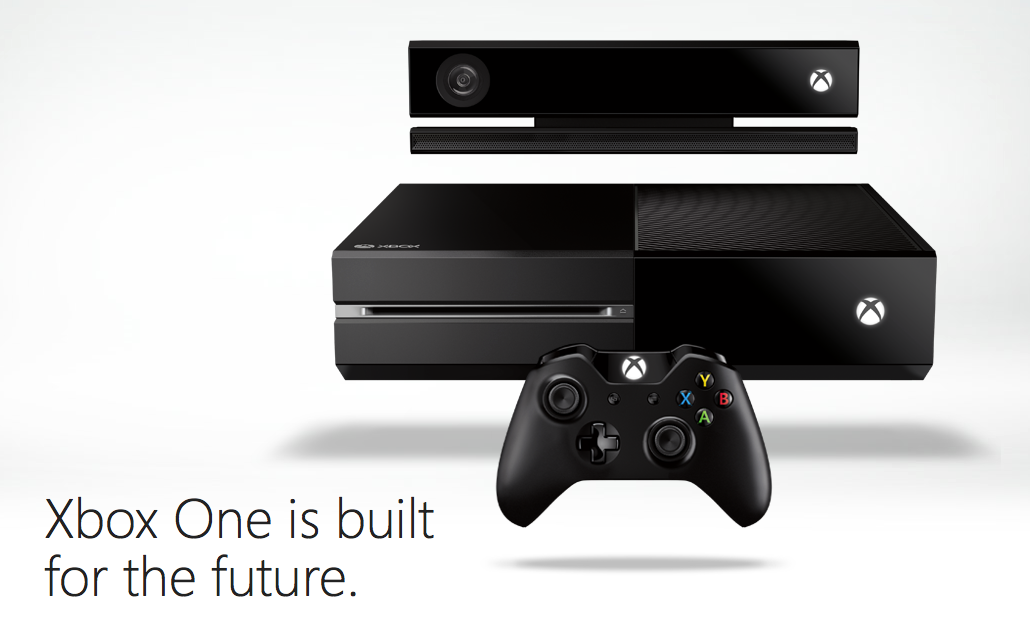


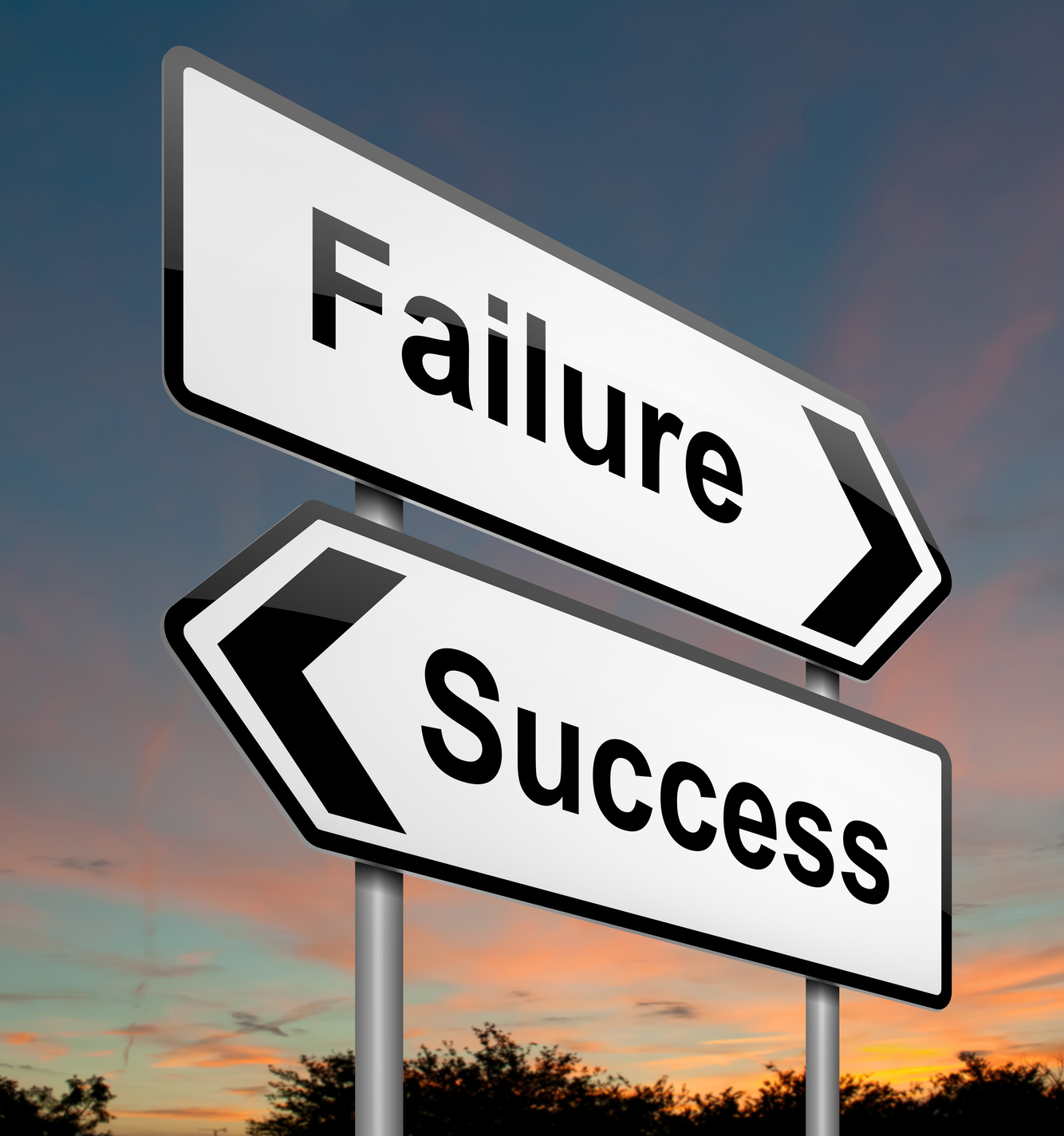





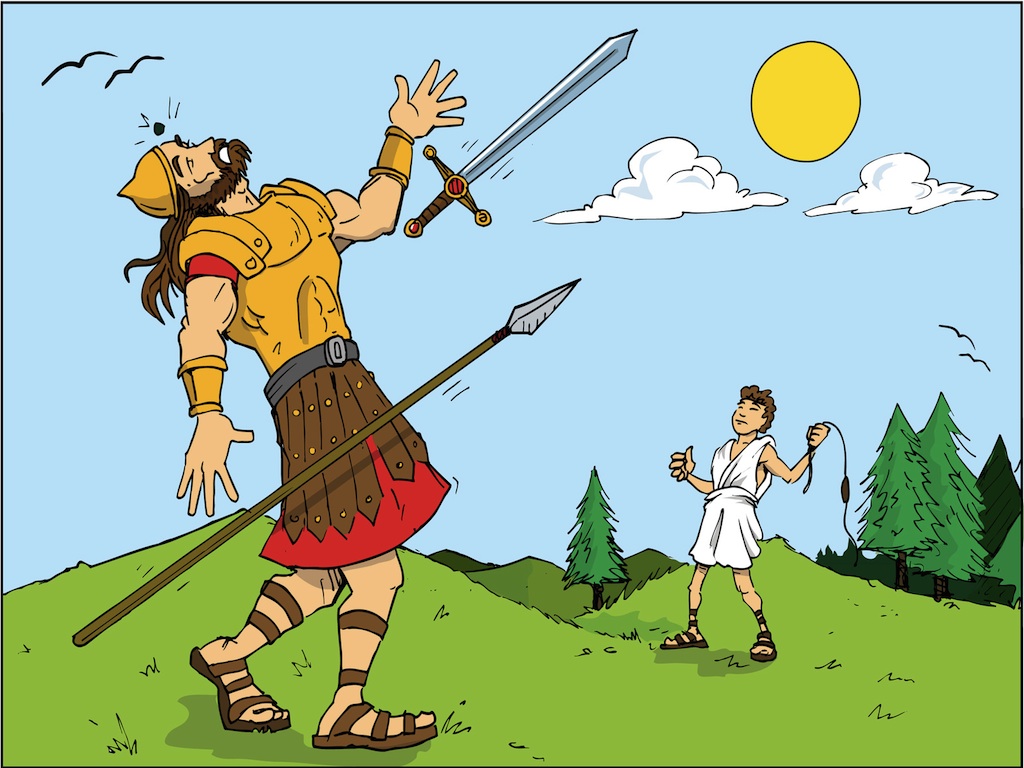
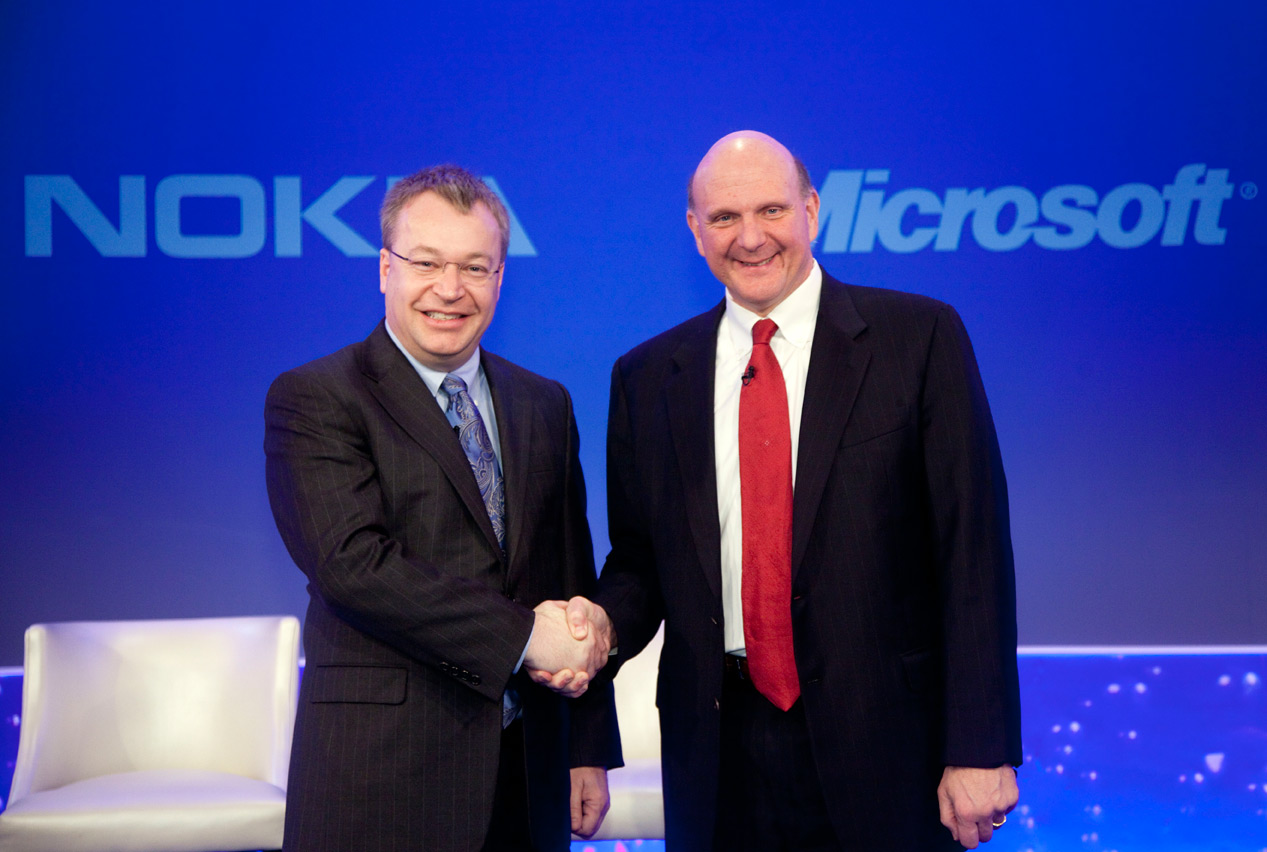
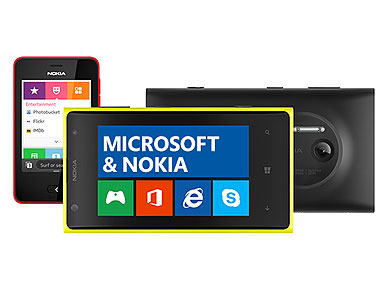
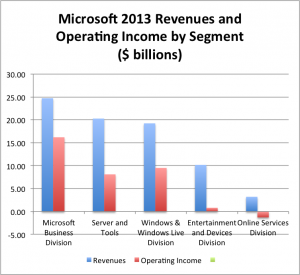 At a time when it should be thinking about the strategic direction of a new CEO, Steve Ballmer in his remaining months and his now probable successor, Nokia CEO Stephen Elop, who will become a Microsoft executive vice president, will instead be devoting a lot of time and effort to integrating Nokia. The money-losing device business had about $15 billion in revenues last year, which would make it Microsoft’s fourth largest division (see chart.) But its 32,000 employees will increase Microsoft’s worldwide employment by nearly a third. A Finnish hardware unit and Microsoft, the quintessential software company have cultures that likely will resist easy integration.
At a time when it should be thinking about the strategic direction of a new CEO, Steve Ballmer in his remaining months and his now probable successor, Nokia CEO Stephen Elop, who will become a Microsoft executive vice president, will instead be devoting a lot of time and effort to integrating Nokia. The money-losing device business had about $15 billion in revenues last year, which would make it Microsoft’s fourth largest division (see chart.) But its 32,000 employees will increase Microsoft’s worldwide employment by nearly a third. A Finnish hardware unit and Microsoft, the quintessential software company have cultures that likely will resist easy integration.

 Ballmer gets a lot of grief for what he
Ballmer gets a lot of grief for what he  And speaking of doing one’s job, the job of the sales guy is to bring in the money. And NOBODY did a better job of bringing in the money than did Steve Ballmer.
And speaking of doing one’s job, the job of the sales guy is to bring in the money. And NOBODY did a better job of bringing in the money than did Steve Ballmer. Do you really want to know why Ballmer is being left to the bears? Feast on this chart.
Do you really want to know why Ballmer is being left to the bears? Feast on this chart.


 I propose a “cold war” solution: Apple and Google sign a long-term licensing agreement. Google will abandon Android, and instead optimize its mobile services, all of them, for Apple’s iOS. In return, Apple will offer nearly unfettered access of its iOS platform to Google engineers.
I propose a “cold war” solution: Apple and Google sign a long-term licensing agreement. Google will abandon Android, and instead optimize its mobile services, all of them, for Apple’s iOS. In return, Apple will offer nearly unfettered access of its iOS platform to Google engineers.

